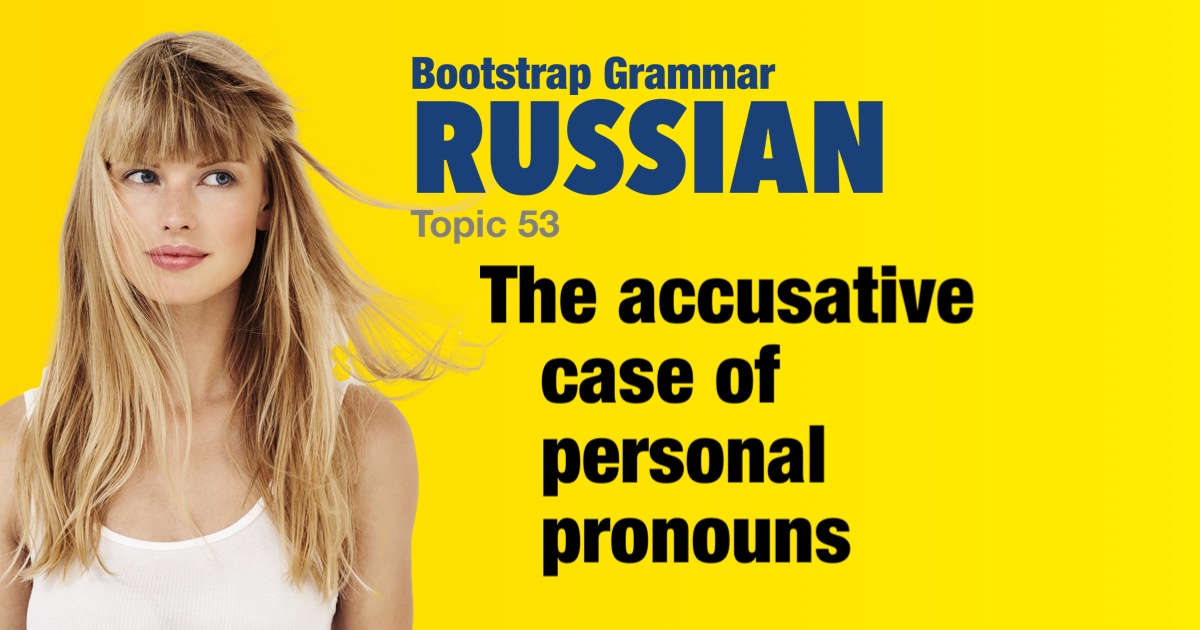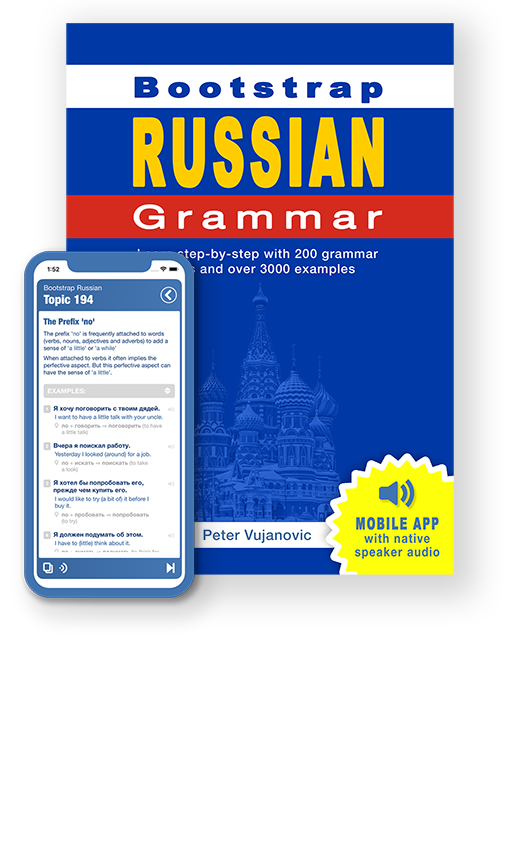Russian grammar - The accusative case of personal pronouns |
|||
|
|||
• я ⇒ меня • ты ⇒ тебя • он/оно ⇒ его (pronounced 'YE-vo') • она ⇒ её • мы ⇒ нас • вы ⇒ вас • они ⇒ их The reflexive personal pronoun (myself, yourself etc) in the accusative is себя (both singular and plural). Notice that in these examples the position of the object pronoun is very flexible. This is possible in Russian because the grammatical case (and not word order) tells you what the subject and object of the sentence are. |
| Examples: | |
|
Я понимаю его. / Я его понимаю.
I understand him.
|
|
|
Он меня не понимает. / Он не понимает меня.
He doesn't understand me.
|
|
|
Она её понимает. / Она понимает её.
She understands her.
|
|
|
Мы их понимаем. / Мы понимаем их.
We understand them.
|
|
|
Они не понимают нас. / Они нас не понимают.
They don't understand us.
|
|
|
Вы их не понимаете? / Вы не понимаете их?
Don't you (formal) understand them?
|
|
|
Она хочет только его. / Она только его хочет.
She only wants him.
|
|
|
Они видят вас. / Они вас видят.
They see you (formal).
|
|
|
Василий смотрит на себя в зеркало. / Василий на себя смотрит в зеркало.
Vasily is looking at himself in the mirror.
|
|
|
Он хорошо понимает себя. / Он себя хорошо понимает.
He understands himself well.
|
|
|
Они смотрят на себя. / Они на себя смотрят.
They are looking at themselves.
|
|
|
Вы хотите его? / Вы его хотите?
Do you (formal) want him/it?
|
|
|
Похоже, она его не понимает. / Похоже, она не понимает его.
It seems she does not understand him.
|
|
 |
|



